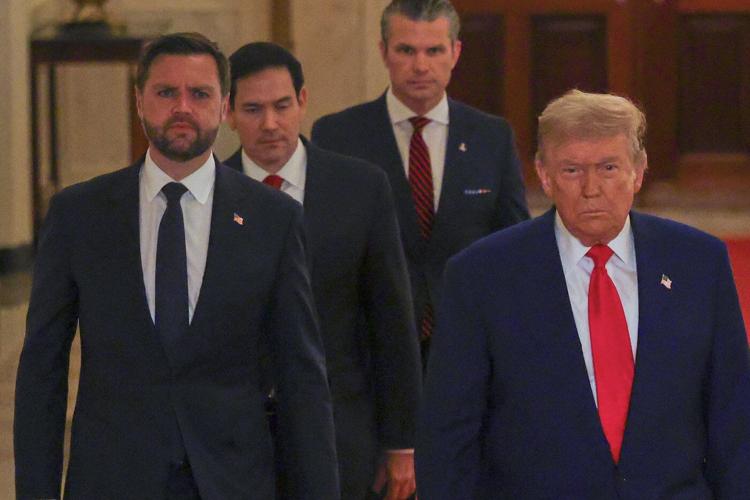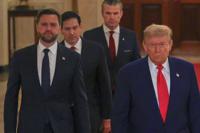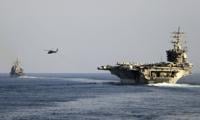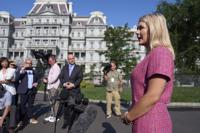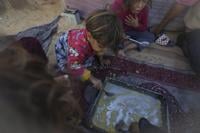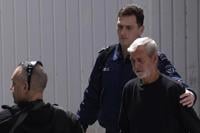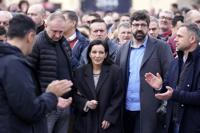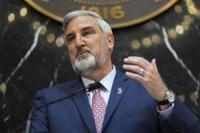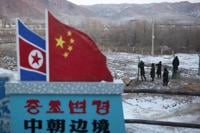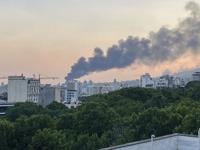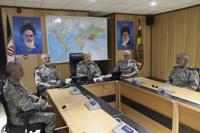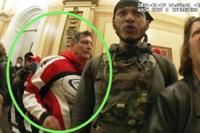WASHINGTON (AP) — President Donald Trump on Monday declared the “12 day war” between Israel and Iran was set to end in a ceasefire, holding the announcement out as validation for his strategic gamble of ordering a devastating U.S. airstrike over the weekend on three Iranian nuclear sites.
“It has been fully agreed by and between Israel and Iran that there will be a Complete and Total CEASEFIRE,” Trump posted on social media. There was no immediate word from either country on the ceasefire and terms of the announced deal were unclear.
The White House reposted Trump’s announcement with a photo of the president holding a red hat that said “Trump was right about everything” in all capital letters.
A ceasefire would be welcome news for the region and the world. But the situation in the Middle East remains far from stable and it was impossible to predict how longer-term dynamics might be affected. The Israeli and U.S. bombing of Iran certainly has slowed Iran’s ability to enrich nuclear material but it might also have steeled Tehran’s resolve to breakout toward a bomb.
As Trump described it, the ceasefire would start with Iran and then be joined by Israel 12 hours later, with the president writing that the respective sides would “remain PEACEFUL and RESPECTFUL.” The phased-in ceasefire was set to begin at roughly midnight Washington time and culminate within 24 hours.
“This is a War that could have gone on for years, and destroyed the entire Middle East, but it didn’t, and never will!” Trump said.
The exact terms of the ceasefire other than the timeline provided by the Trump remained to be seen. On Sunday, the Trump administration had insisted that Iran abandon its program to enrich uranium for possible use in nuclear weapons as a condition of any lasting peace. While the bombings of the Fordo, Natanz and Isfahan facilities were a powerful show of force, it remained uncertain just how much nuclear material Iran still possessed and what its ambitions would be going forward.
Vice President JD Vance said in a TV interview just as the ceasefire was announced that the world would look back at the war between Israel and Iran -- and the U.S. bombing of Iran’s nuclear facilities -- as “an important reset moment for the entire region.”
Appearing on Fox News Channel's “Special Report,” the vice president said the Trump administration hoped that the Iranians had learned an important lesson: If they want to build a nuclear weapon in the future, he said, “they’re going to have to deal with a very, very powerful American military again.”
The ceasefire announcement came after Iran attempted to retaliate for the U.S. assault with a aimed at a major U.S. military installation in the Gulf nation of Qatar. Trump separately thanked Iran on social media for giving the U.S. and allies “early notice” of the retaliation.
The president expressed hope that Tehran — with its reprisal for the U.S. bombardment of three key Iranian nuclear facilities — had "gotten it all out of their ‘system’” and that the moment would lead to a de-escalation in the Israel-Iran war.
“I am pleased to report that NO Americans were harmed, and hardly any damage was done,” Trump said on social media. “I want to thank Iran for giving us early notice, which made it possible for no lives to be lost, and nobody to be injured. Perhaps Iran can now proceed to Peace and Harmony in the Region, and I will enthusiastically encourage Israel to do the same."
The Iranian attack on U.S. forces at Qatar’s Al Udeid Air Base marked Tehran's first act of direct retaliation against the U.S. since Trump ordered strikes on Iran’s nuclear facilities.
Leon Panetta, who served as CIA director and defense secretary under former President Barack Obama, said Iran’s restrained response suggests that “their ability to respond has probably been damaged pretty badly.” He also said it’s a potential signal “they’re not interested in escalating the war, either with Israel or the United States.”
Trump said Iran launched 14 missiles at the base, a sprawling facility that hosts the forward headquarters of the U.S. military’s Central Command and was a major staging ground during the U.S. wars in Iraq and Afghanistan. The base houses some 8,000 U.S. troops, down from about 10,000 at the height of those wars.
The president said 13 of the Iranian missiles “were knocked down” by U.S. air defense systems while one was “'set free' because it was headed in a nonthreatening direction.”
Hours before Iran launched its attack on Monday, the U.S. Embassy in Qatar issued an alert on its website urging American citizens in the energy-rich nation to “shelter in place until further notice.” The Qatari government issued an extraordinary order to shut down its busy airspace.
The attack came as global markets were trying to ascertain what lays ahead after the U.S. struck key Iranian nuclear facilities over the weekend with a barrage of 30,000-pound and Tomahawk missiles.
Iran’s parliament had approved , a narrow shipping lane in the Persian Gulf that about 20% of global oil and gas passes through. The move meant Iran’s national security council would have to decide whether to move forward with the idea, which could lead to a spike in the cost of goods and services worldwide.
Trump's posting did not address what would happen regarding shipping in the Strait of Hormuz, though many energy analysts were skeptical that Iran would have closed the shipping lanes, as that could upset China, the largest buyer of Iranian crude.
The financial markets appeared to respond to the tensions with a relative measure of calm. By Monday afternoon, they were before the fighting began over a week ago.
Trump earlier Monday called on the U.S. and allied oil-producing nations to pump more oil and “KEEP OIL PRICES DOWN.”
The U.S. and allies pressed Russia in the leadup to Moscow's 2022 invasion of Ukraine with threats to its oil industry, and then followed through as many Western oil companies pulled out of the country and the U.S. and Europe imposed sanctions on Russian industry.
The resulting spike in energy and food prices following Russia's invasion caused inflation to intensify, hurting the public approval of then U.S. President Joe Biden and creating a pathway for Trump to return to the White House in last year's election.
___
Associated Press writers Stan Choe in New York, Jon Gambrell in Dubai, United Arab Emirates, and Matthew Lee and Eric Tucker in Washington contributed reporting.

